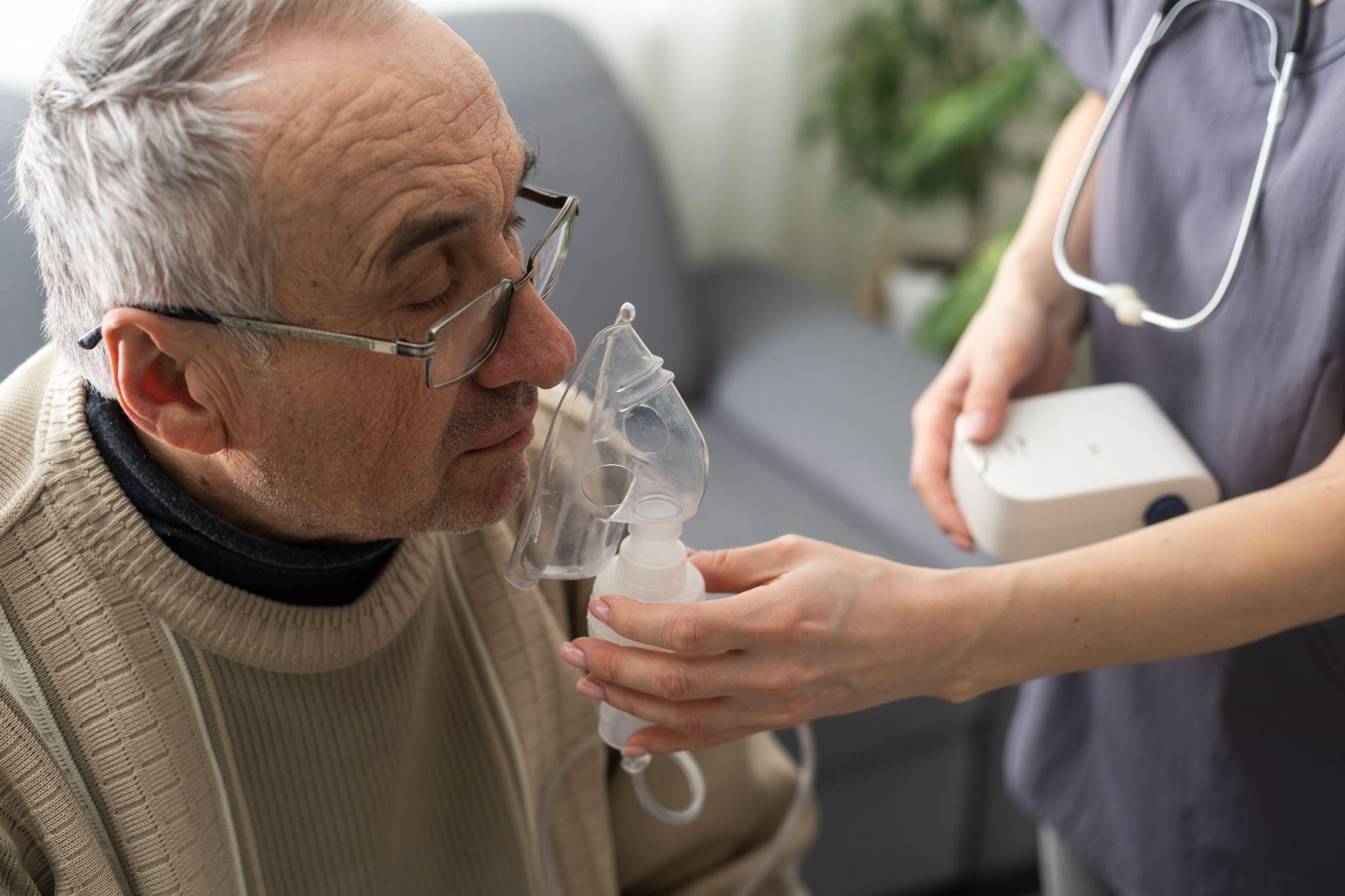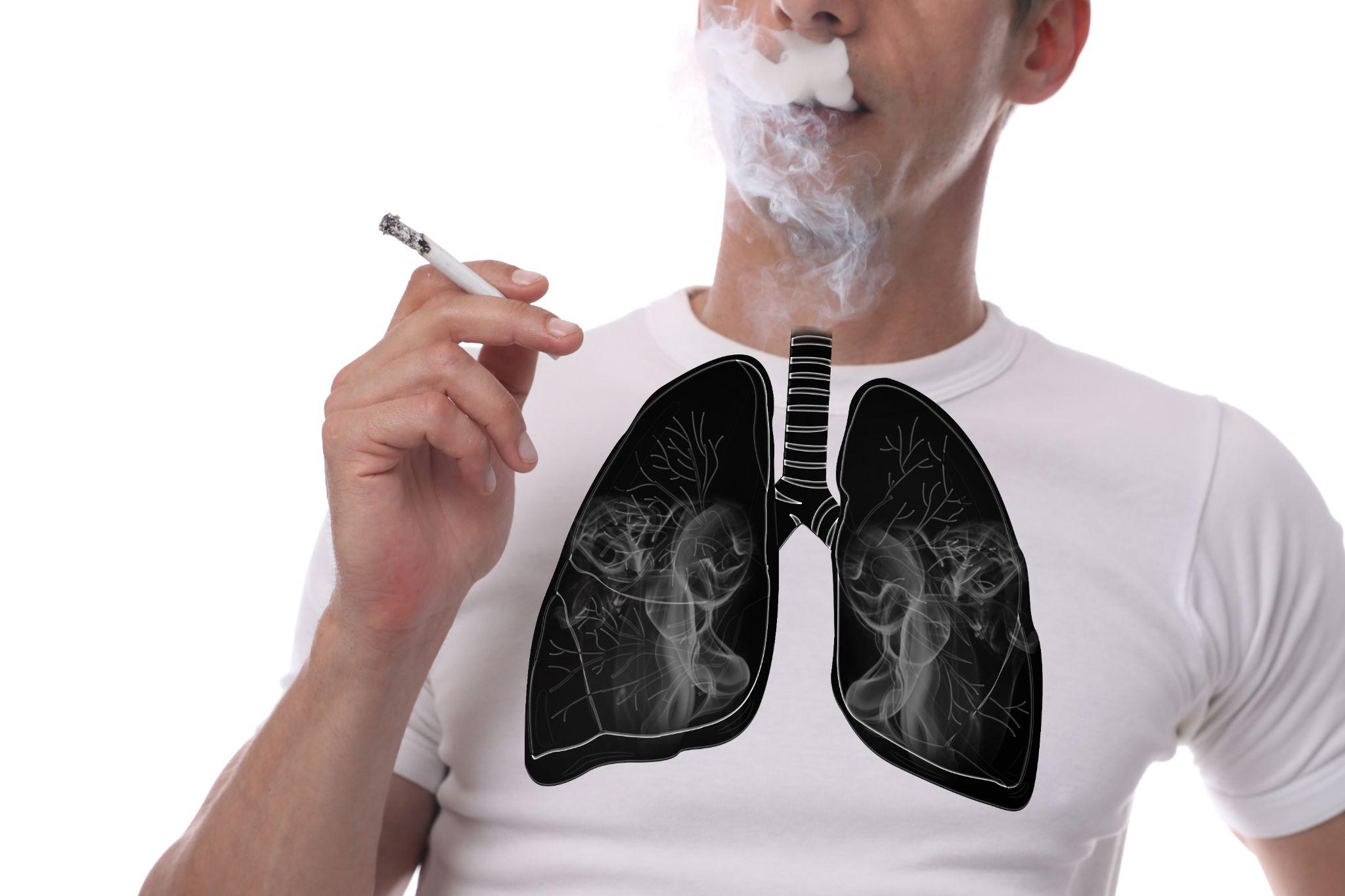COPD Awareness Month: Understanding the Importance of Lung Health
- Posted On:

Chronic Obstructive Pulmonary Disease (COPD) is more than just a medical diagnosis - it’s a life-altering condition that affects approximately 15 million adults and stands as one of the leading causes of death in the United States, ranking sixth in 2021. This progressive disease obstructs airflow, making something as simple as breathing an ongoing challenge.

Despite its significant impact, COPD often goes undiagnosed, leaving many individuals unaware of the serious nature of their persistent cough or shortness of breath. Those most at risk include smokers, older adults, and individuals exposed to long-term environmental pollutants.
By recognizing the importance of lung health and understanding the signs and symptoms of COPD, we can empower earlier diagnosis and better management, paving the way for improved quality of life for those affected. Let’s explore the early warning signs and the vital role of early intervention in combating this disease.
Recognizing COPD: Signs and Symptoms
The symptoms of COPD often creep in gradually, making early diagnosis a challenge. Common warning signs include a persistent cough, frequent shortness of breath, wheezing, and increased vulnerability to respiratory infections. Over time, these symptoms can worsen, significantly limiting daily activities like walking short distances, climbing stairs, or even holding a conversation. In advanced stages, COPD can make simple tasks feel insurmountable, severely impacting quality of life.
However, early detection can be life-changing. Prompt recognition of symptoms enables better disease management and improved outcomes. For patients and their loved ones, understanding these warning signs is the first step toward a proactive approach to care.
Pathways to Treatment
Although there is no cure for COPD, a range of treatments can dramatically enhance the quality of life for those living with the condition. Lifestyle modifications, such as quitting smoking, adopting a nutrient-rich diet, and staying physically active, serve as foundational steps. Medications like bronchodilators and inhaled steroids help open airways and reduce inflammation, offering symptom relief.
Pulmonary rehabilitation programs combine exercise training, breathing techniques, and nutritional guidance, providing a holistic approach to management. For more advanced cases, supplemental oxygen or surgical options may be necessary to improve comfort and lung function.

Francis Yew-Wei Lee, MD
"While COPD is a progressive condition, early recognition and timely intervention can have a transformative impact,"said Dr. Francis Lee, Pulmonologist at Claxton-Hepburn Medical Campus. "Through effective symptom management and lifestyle adjustments, patients can reclaim control over their daily lives and experience a noticeable improvement in their overall well-being. Each patient’s journey is unique, which is why a personalized care plan is essential. Tailored treatments empower individuals to manage their condition and lead fuller, healthier lives."
Smoking and COPD: Understanding the Connection

Smoking is the leading cause of Chronic Obstructive Pulmonary Disease (COPD), responsible for up to 80% of all cases. The chemicals in tobacco smoke damage the lungs over time, leading to inflammation, destruction of lung tissue, and narrowing of airways—all hallmarks of COPD. Even exposure to secondhand smoke significantly increases the risk of developing this debilitating condition.
The damage caused by smoking is often irreversible, but quitting at any stage can slow the progression of COPD and improve overall lung health. For current smokers, the risk of COPD increases with the number of cigarettes smoked daily and the duration of smoking history. However, it's never too late to make a positive change.
Benefits of Quitting Smoking
- Improved Lung Function: While some damage may be permanent, lung function can stabilize after quitting, allowing for better management of COPD symptoms.
- Reduced Risk of Exacerbations: Quitting smoking lowers the likelihood of severe flare-ups, which can cause rapid declines in health.
- Enhanced Treatment Effectiveness: Medications, such as bronchodilators, often work better when the lungs are no longer exposed to smoke.
- Improved Quality of Life: With reduced coughing, better breathing, and fewer infections, individuals can lead more active and fulfilling lives.
Quitting smoking is a vital step in preventing COPD or slowing its progression. Support from healthcare providers, smoking cessation programs, and nicotine replacement therapies can make this journey more achievable and improve outcomes for those at risk or already living with COPD. For more information about tobacco cessation services available at Claxton-Hepburn Medical Center, visit us at www.claxtonhepburn.org or call 315.713.5116.
Claxton-Hepburn’s Commitment to COPD Care
At Claxton-Hepburn Medical Campus (Claxton Campus), we’re proud to offer specialized care for COPD patients. Our pulmonology services and pulmonary rehabilitation programs provide a comprehensive support system for individuals navigating this condition. From managing symptoms to improving daily functionality, Claxton Campus remains dedicated to helping patients breathe easier and live fuller lives. Our pulmonology team focuses on patient-centered care, working closely with individuals to design effective treatment plans. Through pulmonary rehabilitation, patients gain access to structured exercise regimens, education, and emotional support, empowering them to take charge of their lung health.
For more information, explore our service offerings or call our Pulmonology department at 315.713.6778.
Raising Awareness and Supporting Early Diagnosis
COPD Awareness Month serves as a crucial reminder of the importance of early detection and prevention. By spreading awareness, we can encourage individuals to seek medical advice at the first signs of respiratory distress. Early diagnosis not only improves treatment outcomes but also enhances the overall quality of life for those living with COPD. CHMC is proud to stand at the forefront of lung health in our community. Our commitment to education, innovative care, and compassionate support ensures that patients receive the resources they need to manage COPD effectively. Together, we can build a healthier, more informed community, one breath at a time.


.jpg)
